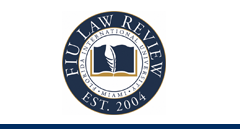Keywords
Internet law; First Amendment; Torts
Abstract
In 1996, Congress enacted 47 U.S.C. § 230 (“Section 230”) as part of the Communications Decency Act (“CDA”), essentially protecting online services from any liability for content produced by third parties. With the hope to encourage internet service providers (“ISPs”) to moderate the content on their platforms so that minors would be less often exposed to indecent material online, the CDA authorized ISPs and users of interactive computer services to restrict access to inappropriate materials without risking liability from being classified as publishers. Section 230 quickly grew to become so central to US internet law that it has been cited as one of the “most important laws supporting the internet, e-commerce and the online economy” and also “the most important law protecting internet speech.” The legal scholar Jeff Kosseff more concisely described it as “the twenty-six words that created the internet.” Although traditionally hailed as one of the most important governmental actions for the development of the internet, the idea of reforming Section 230 has now been increasingly gathering support from government officials. Lately, many politicians on both sides of the aisle have argued that the CDA has been stretched far beyond its original intent and have criticized Section 230 for the role it has allegedly played in “protecting purveyors of hate speech, revenge porn, defamation, disinformation, and other objectionable content.” This comment will address why these latest efforts to reform Section 230 are fundamentally misguided by: (1) analyzing the history and some of the most relevant court decisions surrounding Section 230; (2) summarizing some of the most common elements in proposed Section 230 reform, discussing its policy goals, and arguing that such reforms would either run contrary to the purpose of Section 230, be largely ineffective in achieving their policy goals, or have major economic and free speech consequences that would outweigh any of their potential benefits; and (3) proposing that the best balance between the interests of consumers and interactive computer services is served by courts following the legal framework already articulated by the Ninth Circuit, whereby Section 230 immunity is conditioned on a website not encouraging illegal content or requiring users to input illegal content in its design.
Recommended Citation
Christian Sarceño Robles, Section 230 is Not Broken: Why Most Proposed Section 230 Reforms Will Do More Harm Than Good, and How the Ninth Circuit Got it Right, 16 FIU L. Rev. 213 (2021), https://doi.org/10.25148/lawrev.16.1.15.





